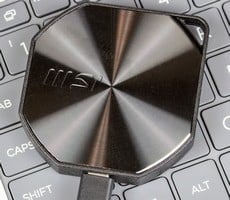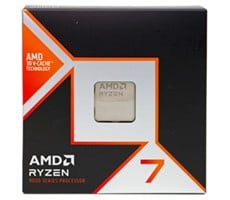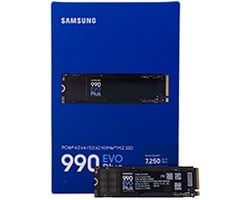Core Ultra 9 285K And Ultra 5 245K Review: Intel Arrow Lake Tested
When the Windows installation was complete, we installed all of the drivers necessary for our components, disabled auto-updating and OneDrive, and installed all of our benchmarking software. When that process was done, we performed a disk clean-up, cleared any temp and prefetch data, processed idle tasks, and optimized all of the SSDs using Windows' built-in tools. Finally, we enabled Windows Focus Assist to minimize any potential interruptions and let the systems reach an idle state before invoking any tests.
HotHardware's Test Systems:
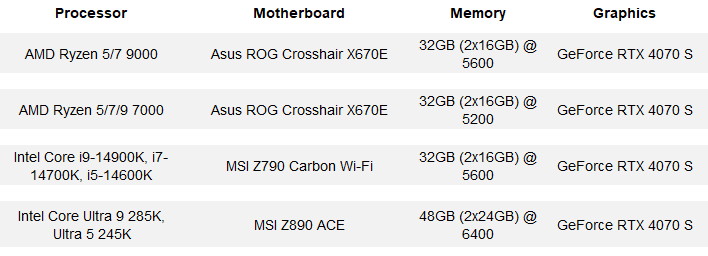
SiSoft SANDRA 2023 Benchmarks
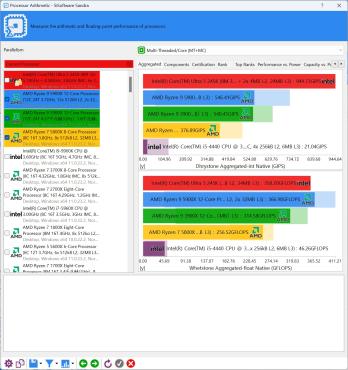 Core Ultra 5 245K Processor Arithmetic |
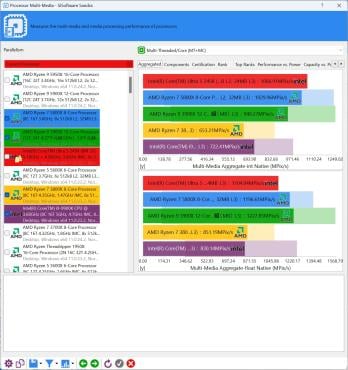 Core Ultra 5 245K Multi-Media |
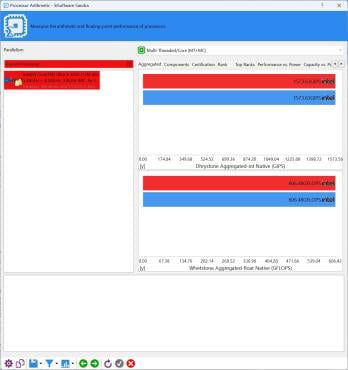 Core Ultra 9 285K Processor Arithmetic |
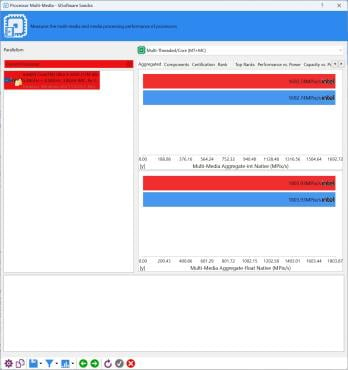 Core Ultra 9 285K Multi-Media |
SiSoft SANDRA hasn't been updated in a while, and doesn't properly support Arrow Lake, so we didn't run our usual array of tests with it. The utility didn't populate reference data properly and the memory bandwidth test failed to run with CU-DIMMs installed in the system. As such, we're only showing the CPU related tests here. The Core Ultra 5 245K achieved over 977GIPS and 358.2GLOPS in the arithmetic test, while the Ultra 9 surpassed 1573GIPS and 606GFLOPS. In the multimedia test, the Core Ultra 5 245K broke the 1066GPix/s mark, and the Ultra 9 245K 1692.7GPix/s.
AIDA64 Memory Bandwidth, Memory Latency & Cache Latency
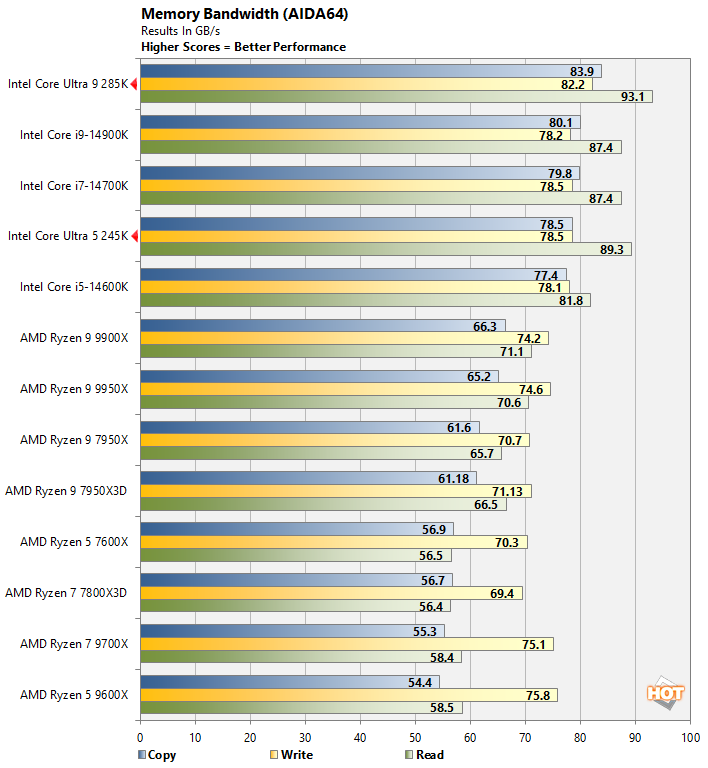
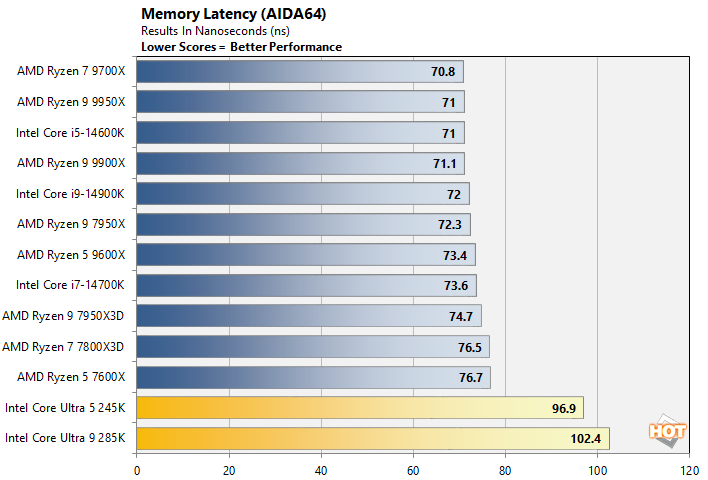
Memory latency is another story altogether, though. With this first wave of CUDIMMs, clocks are nice and high, but they feature relatively loose timings. When configured with their default timings at the standard 6400MT/s, memory latency is measurably higher with the Core Ultra 200S processors we tested relative to every other platform.
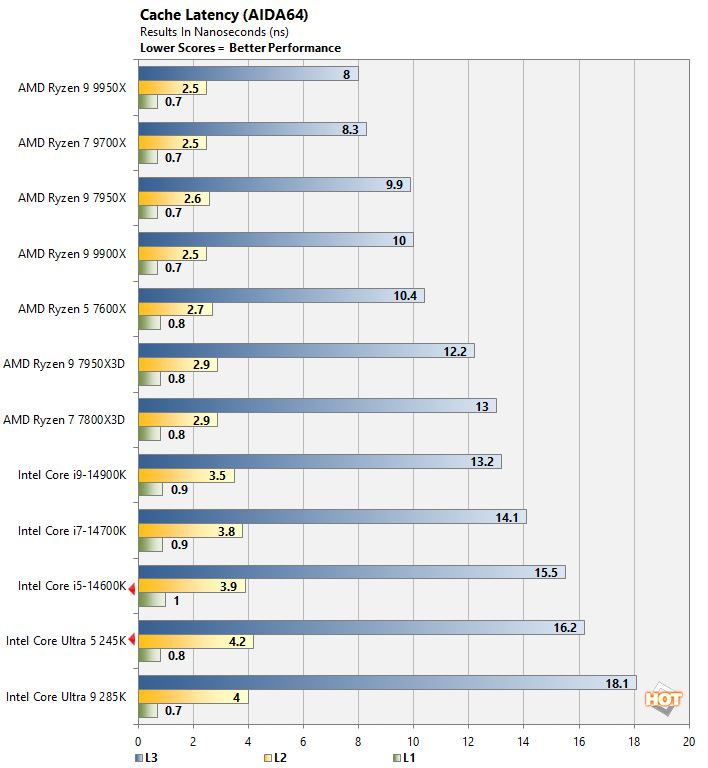
Geekbench v6.3 CPU Benchmark
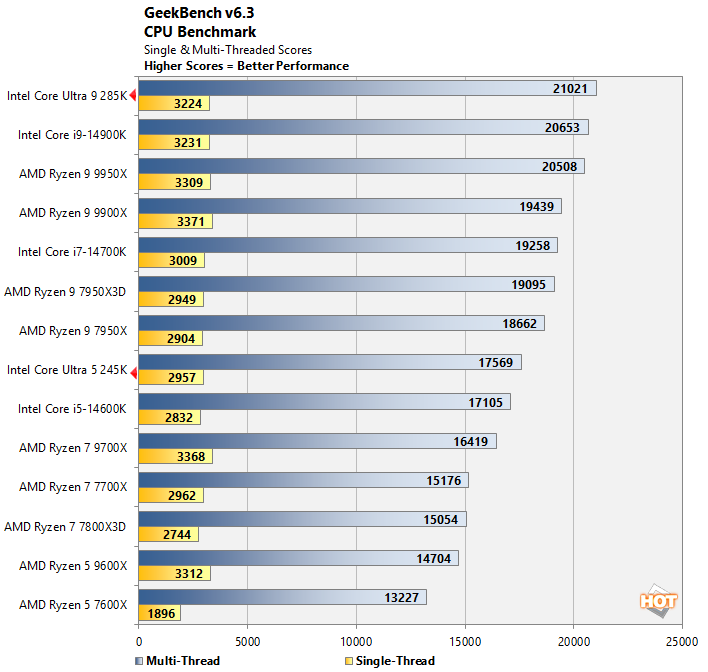
Intel's new Core Ultra 5 245K and Ultra 9 285K performed particularly well in Geekbench. The Ultra 9 takes the top spot with the best multi-threaded score we've ever recorded alongside a highly-competitive single-thread score that's right alongside AMD's best. The Ultra 5 245K also dispatched the previous-gen Core i5 and nearly caught the Ryzen 9 7950X.
UL PCMark 10 Applications Benchmarks
Next, up we have some full-system testing with PCMark. We're reporting all test results from the PCMark 10 Applications benchmark suite, which uses actual Microsoft Office applications, in addition to the Microsoft Edge browser. The workloads are specific to each Office application (Word, Excel, and PowerPoint), and the Edge tests simulates real-world web browsing.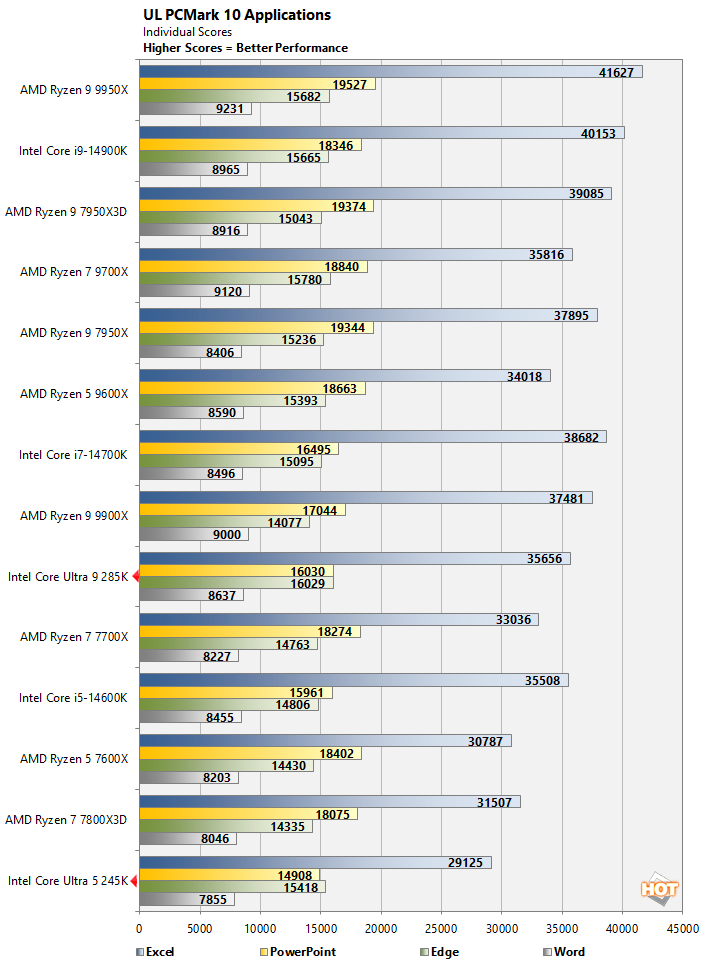
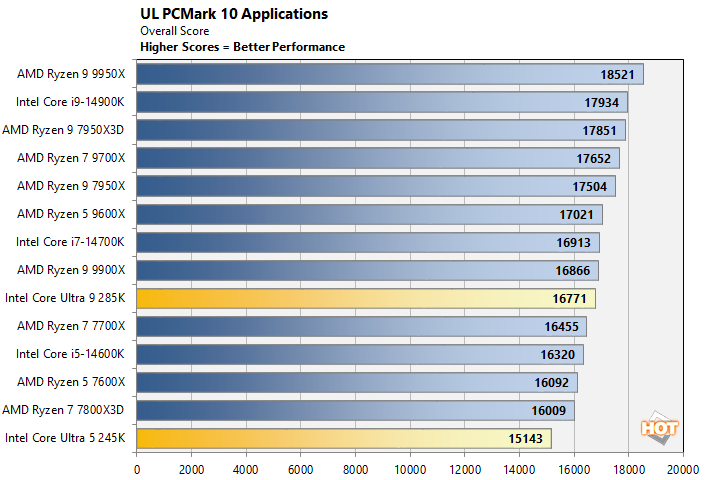
That relatively high memory and cache latency, coupled with support for fewer overall threads, pushes the Core Ultra 5 245K and Ultra 9 285K down the stack in PCMark 10.The Ultra 5 ended up trailing all of the other processors we tested, while the Ultra 9 landed just behind the Ryzen 9 9900X. Of course, all of these processors are more than capable of running Office applications, but the benchmark tool reveals the performance differences between the platforms.
Bapco Crossmark Benchmark
Crossmark is a cross-platform benchmark from Bapco that's available for Windows, Android, iOS and MacOS. Like PCMark, Crossmark measures overall system performance and using real-world applications. It provides an overall score based on the results of its Creativity and Productivity benchmarks and system responsiveness tests.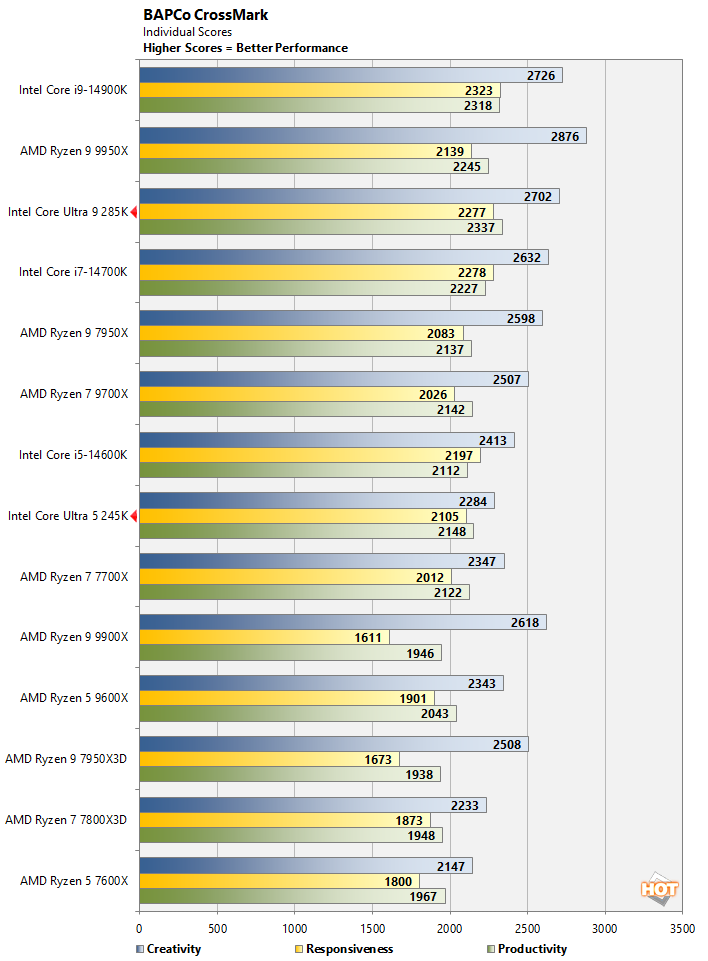
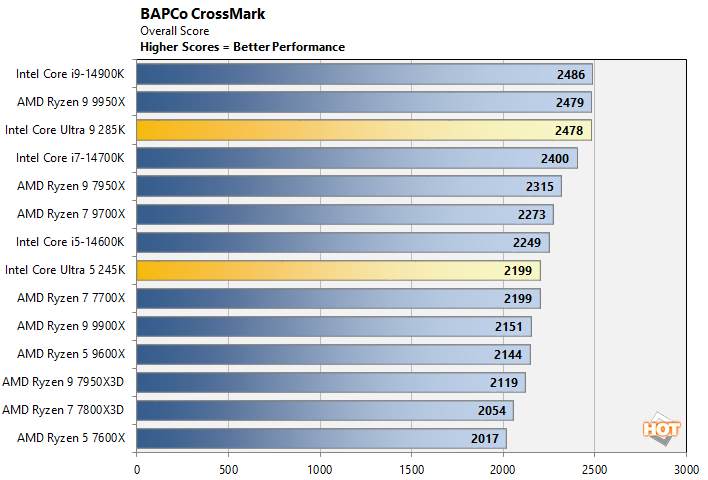
The Core Ultra 5 245K and Ultra 9 285K fared much better in Crossmark, but were unable to catch their previous-gen counterparts. The deltas separating the platforms were quite small, though -- we suspect re-running this one with lower-latency memory would tip the scales in the Core Ultra's favor.
Browser & Web App Benchmarks: Jetstream 2.2 And Speedometer 3
These benchmarks measure performance of an array of browser-based technologies used on modern, rich web applications. Scores in these benchmark are an indicator of the performance users would see when browsing the web and running advanced web apps. All of the systems were tested using the latest version of Google Chrome, with default browser settings, on a clean, fully-updated install of Windows 11.
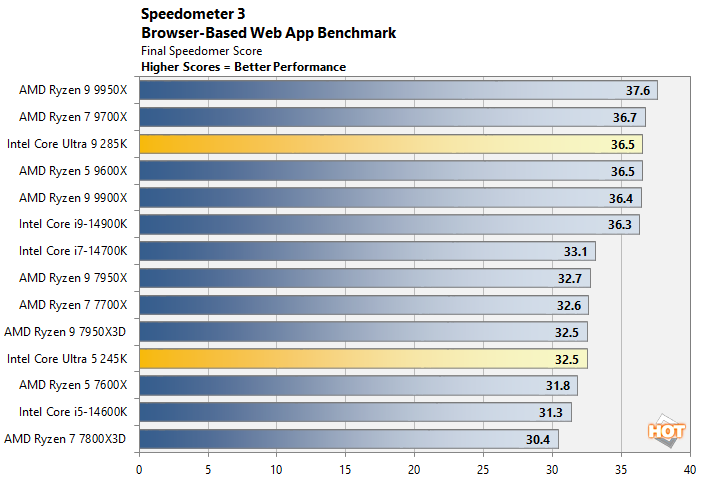
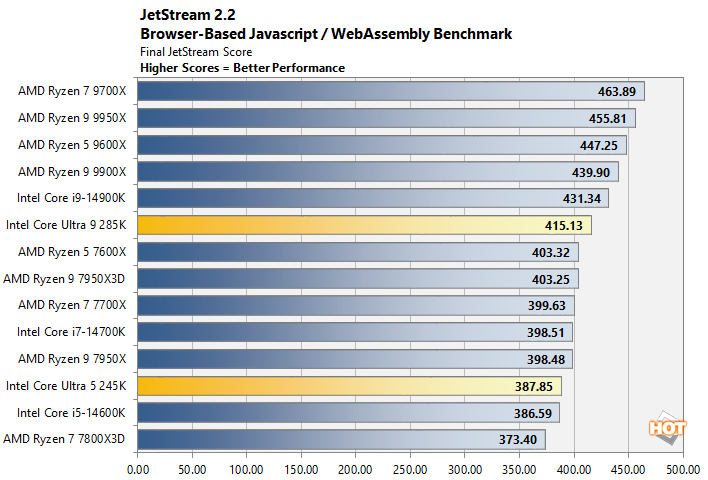
7-Zip Data Compression / Decompression Tests
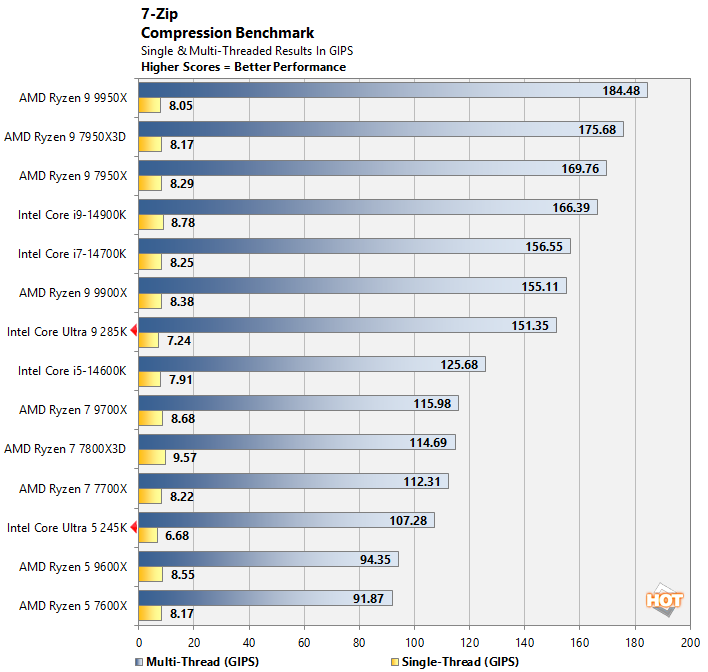
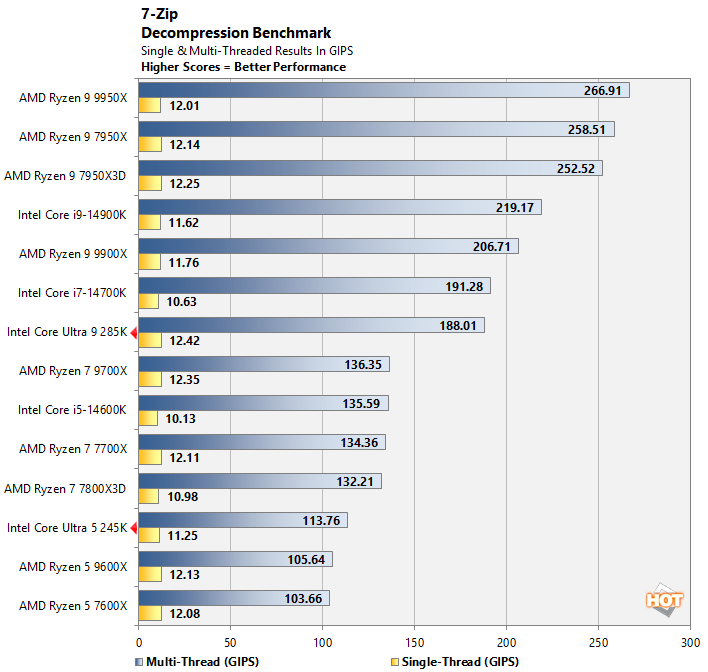
With fewer threads at their disposal, the Core Ultra 5 245K and Ultra 9 285K trail somewhat in the highly-threaded 7-Zip compression and decompression tests. Performance is still good, and competitive in their respective classes, but the Core Ultra 5 245K and Ultra 9 285K don't offer the same kind of throughput here.


